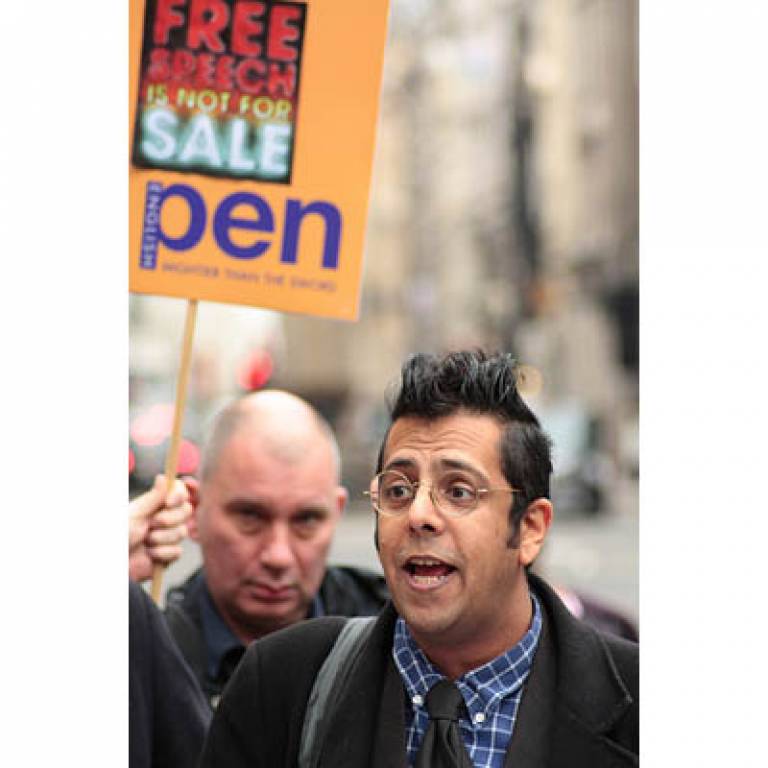Fighting for our right to debate
20 May 2010
PhD student Jay Stone (UCL MRC Laboratory for Molecular Cell Biology) discusses the implications for science of the current inequities in British libel law.

In science, healthy debate and discussion of each other's work is crucial. We all read papers and discuss what we think about them; whether we agree with their controls, their statistical analysis, whether we would have drawn the same conclusions. It is what drives our work forward.
We put so much emphasis on having a fresh pair of eyes on our work that we have even designed the peer review system around it. Science is meant to be open for all to see, warts and all.
So what if your work showed a company's medical claims to be flawed or misleading? This information is important but the company probably wouldn't be keen on you announcing it to everyone.
We have laws in our society to protect the people that speak. Libel laws are designed to protect us from false accusation and defamation of character. The general consensus is that if you have evidence to support your claims then you cannot be sued for libel; you have every right to say or print the truth. So this should mean libel laws protect the good science and punish the bad.
So what would happen if that system were threatened? What if we faced legal threat if we published something that goes against the grain of the established dogma or something that perhaps suggests someone else's work is wrong or even unethical?
Unfortunately I am sure many of us would think twice about speaking out; legal action is both expensive and time consuming. But what of our obligations to the general public? We are trained to be able to spot the bad science so isn't it our duty to help others see the pseudo claims and data misrepresentation?
This used to sound like a rhetorical question, but last year's court battle of Simon Singh vs The British Chiropractic Association (BCA) proved to everyone that this is actually a real problem and a question we need to answer.
Simon published an article about chiropractic procedures claiming to treat childhood asthma or even Parkinson's. He voiced his concerns over their claims and felt it was his duty as a scientist to inform the public of possible side effects and damage that could be caused by some of the procedures - everyone should be able to make an informed choice.
The BCA and Simon have been locked in a court battle for the past year and it looked as though Simon was going to lose the case which would cost him thousands of pounds, and probably even make him bankrupt.
However, his case was seen by a charity called Sense about Science and PEN Index who together started a petition to get the libel laws in England changed to protect free speech and those people willing to speak the truth.
Through endless campaigning they have secured over 50,000 signatories from the likes of Richard Dawkins, Stephen Fry and Ben Goldacre, as well as support from all three major political parties. The campaign continues to grow and this month the BCA announced they were dropping their case against Simon.
Now that his story has made us all realise the flaws in the system and the importance of getting it right, we must make sure we continue our efforts to ensure that the problems are addressed so we can keep science open and humble to the demands of the public.
Image: Science writer Simon Singh (in the foreground) and Observer journalist Nick Cohen at the
Royal Courts of Justice on 23 February 2010. Photo courtesy of Robert Sharp / English PEN on Flickr. Some rights reserved
UCL context
This article was first published in Issue 8 of Opticon1826, UCL's all-faculty academic journal, run and edited
by UCL postgraduate students who represent all eight UCL faculties.
 Close
Close

